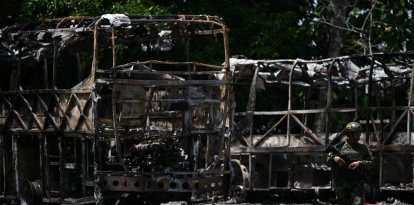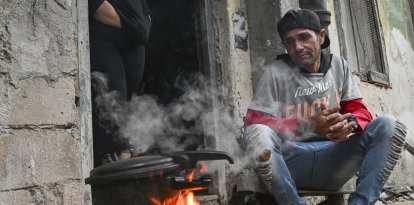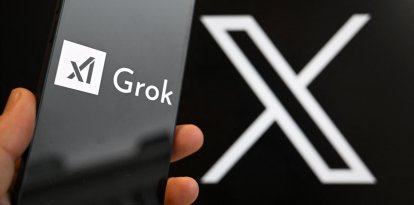Barclays sees a 'significant possibility' of a transition in Venezuela
In a report distributed among its clients, the firm stated that Maduro might be aiming for a political change scenario.

Venezuelan President Nicolas Maduro delivers a speech during a signing ceremony for the agreement to acknowledge the results of the July 28th presidential election at the CNE headquarters in Caracas on June 20, 2024. (Photo by Federico PARRA / AFP)
Barclays, one of the world's largest and most important financial firms, released a report on Venezuela that was distributed among its clients. In the report, dated June 20, the firm asserts that "there is a significant possibility of a political transition" in the country ruled by Nicolás Maduro.
Amid the current situation in Venezuela, with presidential elections without conditions on the horizon, but with the development of a powerful national opposition movement led by María Corina Machado and centered around the candidacy of Edmundo González Urrutia, the opportunity for political change arises.
Analysts Alejandro Arreaza and Jazon Kleene discussed this in the report to the firm's clients. According to Barclays, although uncertainty grows ahead of the July 28 elections, "the balance of risks appears to be asymmetrically positive."
Everything indicates that Maduro has chosen the one pointing to a transition among the possible scenarios. Edmundo González Urrutia, who ended up being the opposition candidate after the arbitrary disqualification of leader Machado and her representative, academic Corina Yoris, has become the undeniable favorite to win on July 28. To stay in power, Maduro could suspend the elections, disqualify González, or attempt electoral fraud. According to the firm, the Chavista leader has assumed the third scenario.
In that scenario, the risks are very high, Barclays states, as Maduro risks the opposition continuing to gain momentum and the fraud not being sustainable due to the system's fragility. Moving forward with fraud, the firm asserts, would test the regime's cohesion and repressive capacity.
Barclays maintains that the July 28 elections are not "free and fair"; however, it states the following: "The government's strategy of dividing and demobilizing the opposition has not been successful, making Edmundo González's candidacy a true challenge to Maduro's stay in power."
"Considering the high exit costs still faced by regime members, their past behavior, and the institutional control they still hold, the risk of adding obstacles to the process cannot be ruled out. However, events so far have shown that the government may be making miscalculations and/or facing internal limitations that have not allowed it to completely interrupt the process and may force them to negotiate a transition," the report reads.
According to the firm, the fact that Chavismo has allowed Edmundo González's participation so far and let him become a political phenomenon supported by María Corina Machado — who is touring Venezuela in an impressive tour, daily attracting thousands of Venezuelans tired of Maduro — points to Chavismo beginning to accept the scenario of a political transition.
"It is an unprecedented situation," it reads.
There is a challenge, however: Chavismo may still not have enough incentives to consider leaving power or prefer it over continuity in Miraflores.
Barclays recalls that there is a price on Nicolás Maduro's and other influential Chavista leaders' heads. Furthermore, much of the regime's elite faces accusations of human rights violations, sanctions, and investigations in instances like the International Criminal Court. "This generates resistance to a potential regime change," says the firm. However, private negotiations in this direction are possible to ensure a peaceful and protected exit for key Chavista regime factors.
Regarding the country's economy and international agreements, the firm says more actors are interested in regime change than Maduro's continuity.
"If the transition materializes, the lifting of sanctions and international support could lead to strong economic recovery, with the potential to double its size in the next six or seven years."
On the other hand, if Maduro manages to stay in power by force, "a possible debt restructuring would be delayed, and recovery values could be lower."
Today's regime is not economically robust, like the one that has faced political challenges in the past. Therefore, Maduro has limitations in maintaining loyalties, Barclays says, which "could explain his interest in having the sanctions lifted."
Therefore, the private report concludes, "a potential escalation of internal and external pressure would increase the cost of staying in power for regime members, which could lead to a fracture."
























